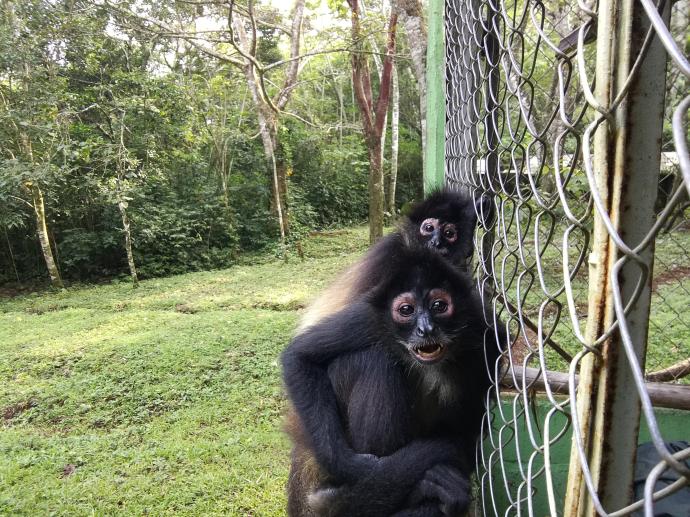Conclusions
- The higher sensitivity of spider monkeys compared to that of chimpanzees towards sweet-tasting substances may be explained by their higher degree of frugivory, supporting the notion that dietary specializations affect taste perception.
- Relative to humans, the taste thresholds of spider monkeys were usually higher. Nonetheless, as the determination of taste preference thresholds does not allow for an accurate measurement of an animal’s ability to detect a taste substance, it is possible that spider monkeys may perceive concentrations as low as humans do.
- Although further research is necessary for a deeper understanding of the sense of taste in non-human primates, the lack of responsiveness to some of the substances supports the notion of a dichotomy in sweet-taste perception between platyrrhine and catarrhine primates.
- Aspartame-induced facial responses indicate that this substance is probably not perceived as sweet by the spider monkeys.
- Taken together, the results suggest that both dietary specialization and phylogenetic relatedness may contribute to between-species differences in sweet taste perception.

Responsible for this page:
Director of undergraduate studies Biology
Last updated:
05/25/20
